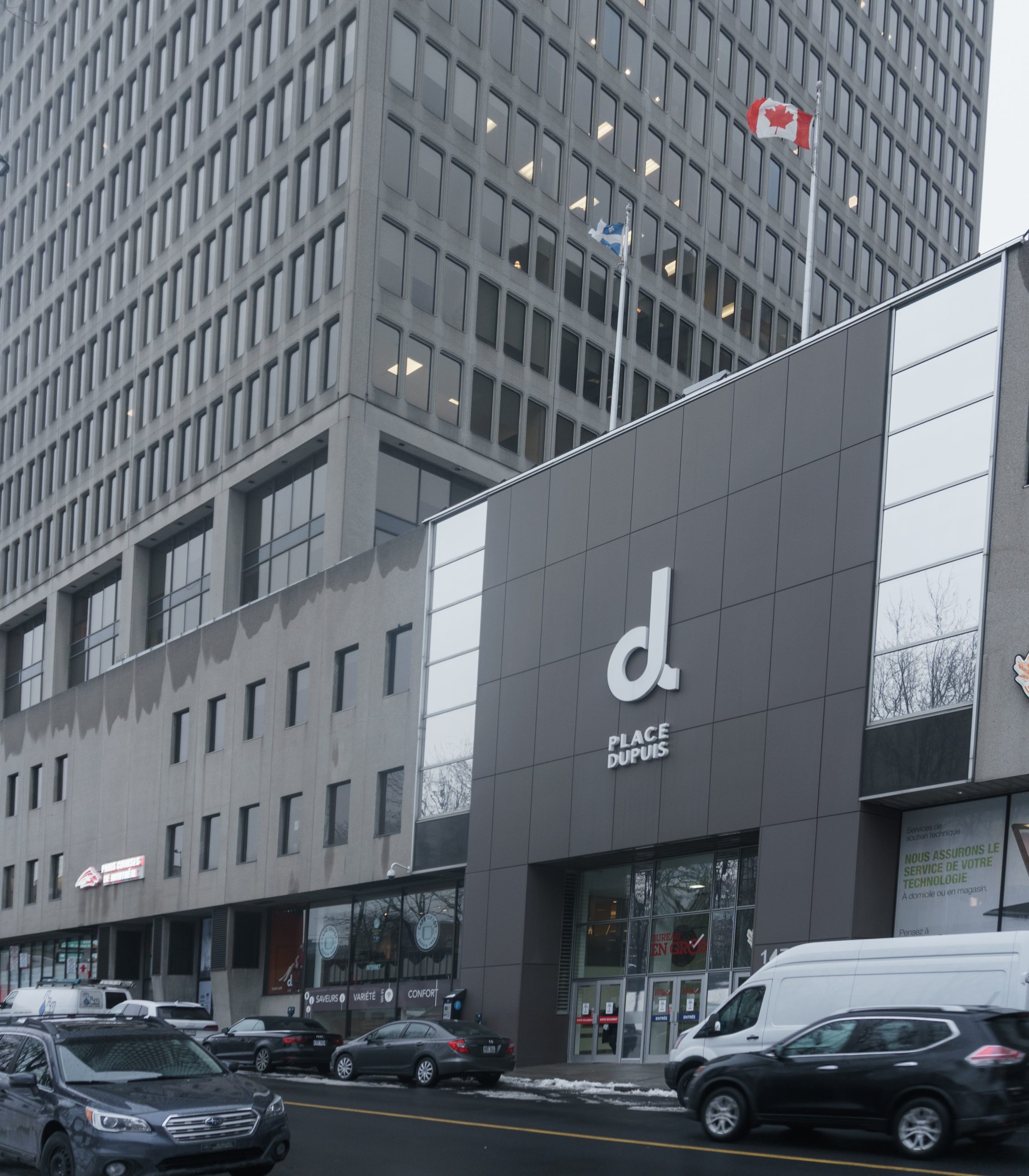The shelter’s opening became controversial following complaints from business owners
On Nov. 3, a temporary winter emergency shelter opened its doors at Hotel Place Dupuis in downtown Montreal. While the new overnight shelter raised concerns among local merchants, its operator believes the new location is not responsible for unlawful activity in the neighbourhood.
Located near the Berri-UQAM metro station, the overnight shelter will provide 380 beds for those who need a place to stay during the cold winter months. It is operated by Welcome Hall Mission, a charity organization that has been supporting Montrealers dealing with homelessness and poverty since 1892.
According to Samuel Watts, the CEO of Welcome Hall Mission, the shelter’s opening was part of a broader plan for dealing with the reality of COVID-19, as well as the usual winter measures that are necessary in Montreal.
“We don’t want to have people out on the streets, especially in the cold weather,” said Watts in an interview with The Concordian.
However, despite providing a safe and warm place to spend the night, the shelter sparked tensions with the neighbourhood’s business owners. Sébastien Caron, co-owner of a Copper Branch restaurant located just three blocks away, believes that the project’s lack of supervision creates an unsafe environment in the area.
“Employees are afraid to come to work. The walk from the metro station to the restaurant is quite intimidating: they’re screaming and threatening us. Our customers tell me the same thing,” said Caron.
However, Watts said that the shelter cannot control what happens on the nearby streets, especially since drug trafficking and violence are not new to the area. In fact, the shelter is located across from Place Émilie-Gamelin, “a square that’s been nefarious for a variety of illegal activities for the past 25 years,” according to Watts.
Watts added, “It’s disingenuous for the merchants to suggest that the shelter is increasing and adding these problems that have long existed in the area.”
On Nov. 26, the temporary winter shelter welcomed 237 people to stay the night. Hotel Place Dupuis had over 100 available beds that day for anybody else who wished to stay at the shelter. For Watts, however, having a large capacity is not something he would consider an achievement.
Reducing the demand for such shelters and providing permanent affordable housing should be Montreal’s solution to homelessness, according to Watts. He added, “The notion that we need to continue building up the emergency shelter capacity is equal to insanity.”
Indeed, even with over 35 homeless shelters around the city, Montreal still faces a worrying homelessness problem. According to Mayor Valérie Plante, anywhere from 3,000 to 6,000 Montrealers this year do not have a place they can call home.
Moreover, Plante announced that homelessness has recently become a more alarming issue.
“Since the pandemic, we’ve noticed that there’s more and more people that are actually in the streets,” said Plante while giving a tour of the shelter on its opening day.
Therefore, Watts believes that all parties — homeless organizations, business owners, and the government — should come together and collectively aim for solving this problem, especially since it became even more serious during the pandemic.
“What COVID-19 has taught us,” Watts explained, “is that there’s no ‘us’ and ‘them.’ There’s only us, and we have to find ways of working together.”
The Hotel Place Dupuis shelter will operate throughout the winter season until March 31, 2021.
Photograph by Kit Mergaert
